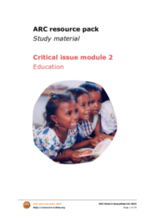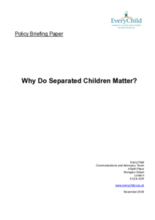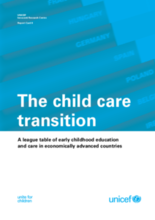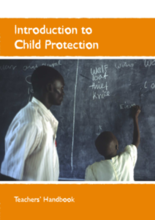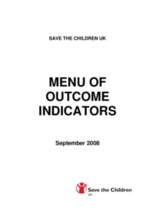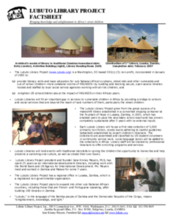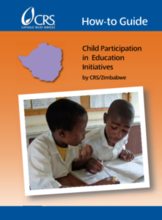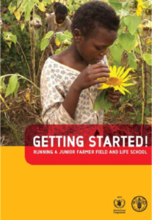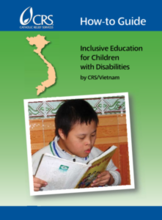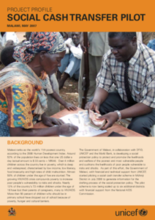Displaying 301 - 310 of 349
This module places emphasis on understanding the vital need for reestablishing education during and after an emergency so as to minimise the psychological impact of the event and maximising the opportunity to strengthen preexisting education structures.
Evaluation of the need for increased understanding and inclusive responses to highly marginalized and separated children.
A great change is coming over childhood in the world’s richest countries. Today’s rising generation is the first in which a majority is spending a large part of early childhood in some form of out-of-home child care. This Report Card discusses the opportunities and risks involved in the child care transition, and proposes internationally applicable benchmarks for early childhood care and education.
A handbook that identifies and addresses issues of child protection in education in Southern Sudan, and mobilizes communities into action to make schools protective and nurturing learning environments.
Guidance on the development of monitoring and evaluation indicators for child protection, education, health and HIV, and hunger programs.
The Lubuto Library Project seeks to fill an important gap in services to vulnerable children in Africa by providing a bridge to schools and social services otherwise beyond their reach.
A Guide that highlights successful strategies used to facilitate child participation in educational initiatives in Zimbabwe. Real-life examples are provided for illustration, replication and adaptation by other organizations involved in education programmes.
A guide to setting up, operating and sustaining an agricultural and life skills participatory training program for orphans and vulnerable children (ages 12-18), living in situations of food insecurity.
A ‘How-to’ Guide, based on the experiences of CRS/Vietnam, that provides practical strategies and steps developing countries can take to build inclusive education programmes for children with disabilities.
Brief overview of a project designed to give monetary aid to poor families. Program seeks to reduce poverty while promoting health and education.

